Summer and boats – for countries built around water systems, ‘messing about in boats’ is an idyllic summer treat. The line, of course, comes from Kenneth Grahame’s 1908 children’s book, The Wind and the Willows, where Ratty remarks to Mole: ‘Believe me, my young friend, there is nothing–absolutely nothing–half so much worth doing as simply messing about in boats’.
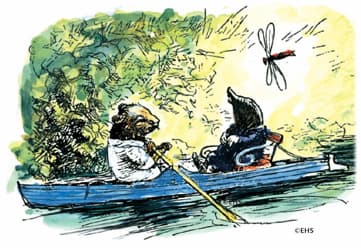
Ernest H. Shepherd: Rat and Mole in The Wind in the Willows, 1932
Scottish poet Robert Louis Stevenson posed the question in the form of a child floating leaves on the river. ‘Where Go the Boats?’, and the question was taken up by a number of composers, including Roger Quilter, Percy Turnbull, and Charles Villiers Stanford.
For the child, the river will flow forever, and an unimaginable hundred miles away or more, other little children will bring his boats ashore.
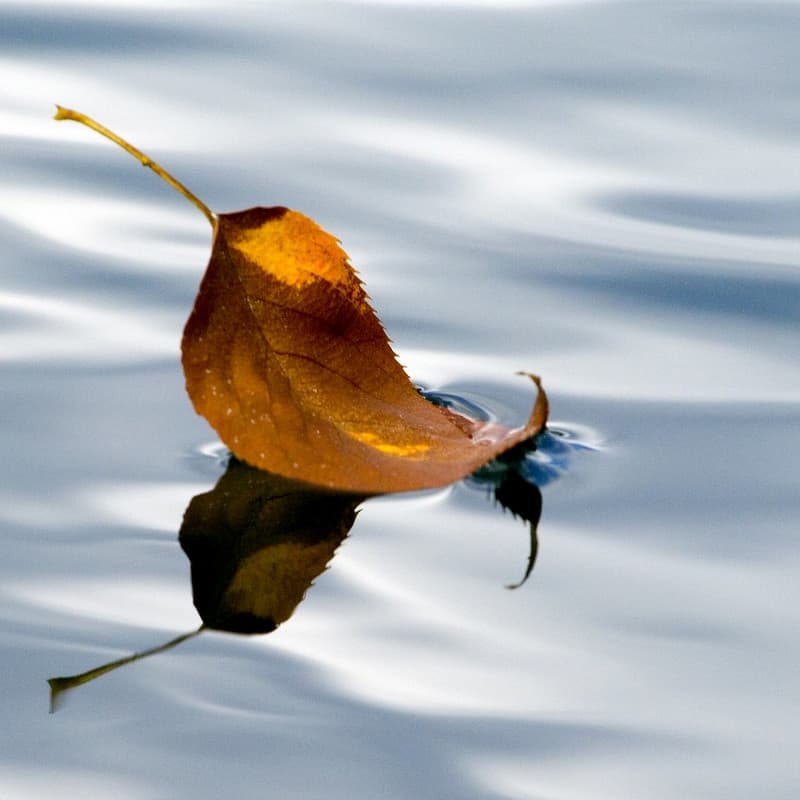
Floating Leaf (Image by Vermont Lenses)
Charles Villiers Stanford: A Child’s Garland of Songs, Op. 30 – No. 5. Where Go the Boats? (Gareth Brynmor John, baritone; Susie Allan, piano)
American composer Margaret Brouwer gives us a sailing adventure at dawn. All we can hear is the eerie call of a loon and the sound of water lapping on the shore. Once the sun rises, however, our little boat moves out onto the water, pushed by a breeze, then a wind. After a meeting with some big waves, all returns to calm. There’s calm and exhilarating adventure, all of it contained in the world of your little boat.
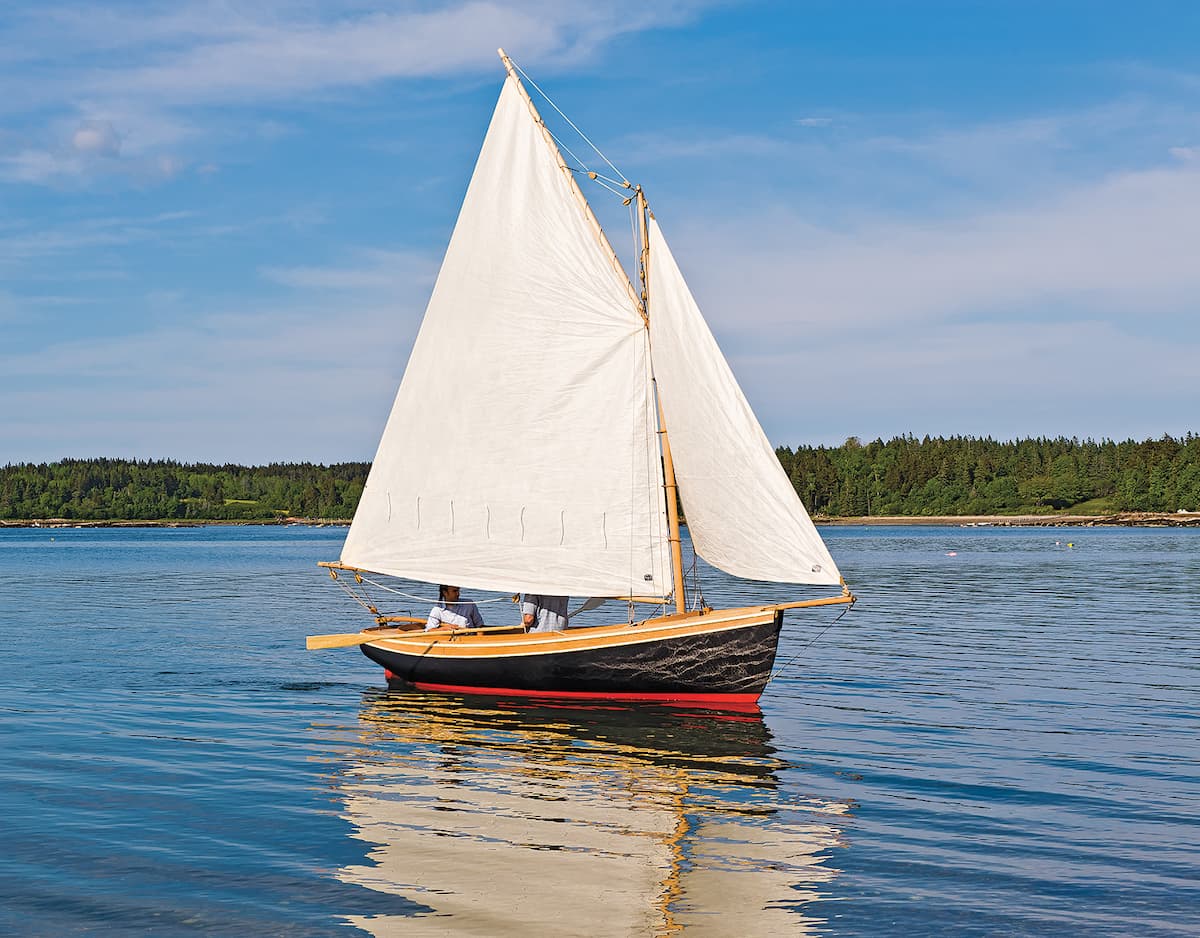
Hampton Sloop
Margaret Brouwer: The Art of Sailing at Dawn (ORF Vienna Radio Symphony Orchestra; Marin Alsop, cond.)
German composer Brian Andrew Inglis (*1969) draws inspiration from the poetry and symbolism of Wiliam Butler Yeats. Yeats’ poem ‘Sailing to Byzantium’ first appeared in his collection Stories of Red Hanrahan and the Secret Rose in the 1927 reprint. Written in 1926, when Yeats was in his early 60s, it is about the difficulties of old age and having an active mind tied to a dying body.
The poet imagines travelling to the medieval city of Byzantium, a realm where life, art, and spirituality were uniquely fused, where he will be transmuted into a golden bird who will live forever, singing of the past, the present, and the future.
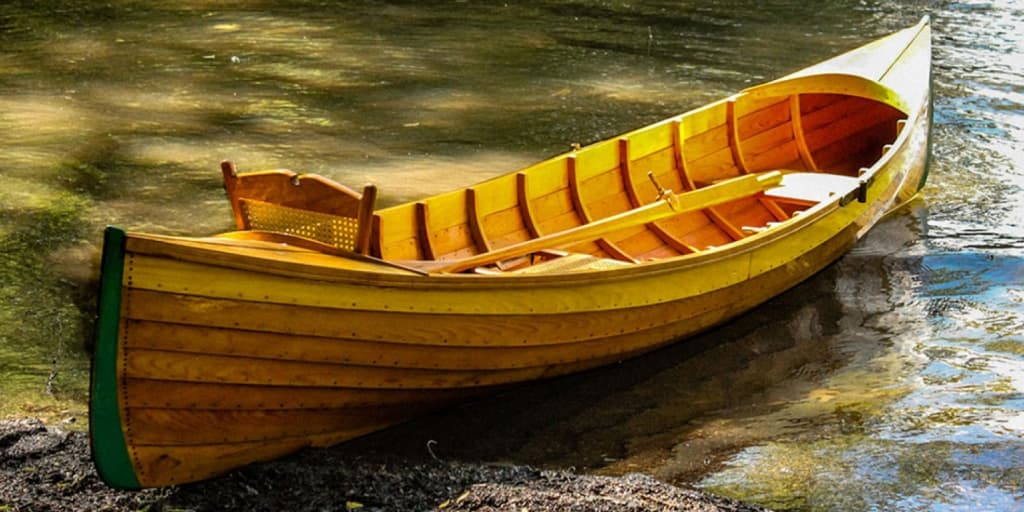
Guideboat (Lake Champlain Maritime Museum)
Brian Inglis: Sailing to Byzantium – I. That is no country for old men (Rachel Barnes, recorder)
Finnish composer Toivo Kuula isn’t in a sailboat but watching a little bird lead her chick back home across the water. The birds sail in tandem across the water and fly around the masts of a sailing ship on their flight.
Toivo Kuula: Purjein kuutamolla (Sailing in the Moonlight), Op. 31a, No. 1 (Satu Salminen, soprano; Kirsi Tiihonen, piano)
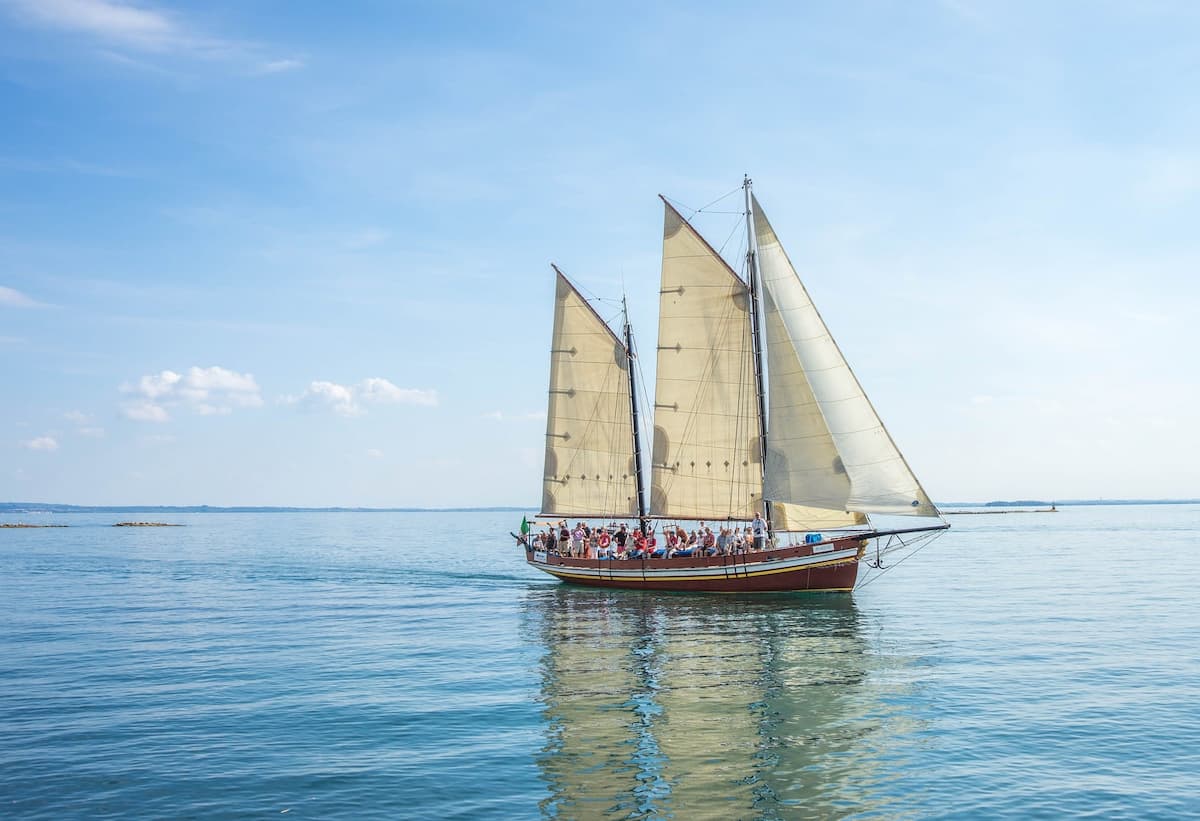
Sailing Boat
Greek composer Christos Tzifakis (b. 1969) uses his skills as a composer and a guitarist to take us on a Flamenco Odyssey. For Tzifakis, ‘Odyssey is a voyage. Odysseus is me, Odysseus is you, Odysseus is every single person who chooses to go through adventures in order to reach the harbour of self-realisation’. He also had in mind the poem Ithaca by the Greek poet Constantine P. Cavafy:
The moment you set sail for Ithaca,
wish for your journey to be a long one,
full of adventure and awareness.
Tzifakis has created a fantasie based on two different Spanish dances, the fandango and the bulería. The fandango has a 3/4 rhythmic pattern that gives a sense of a circular movement, not unlike that of the sea waves. In the second part, where the bulería enters, the whole feeling becomes more intense and adventurous and where the tempo doubles. It’s the beginning of the voyage …
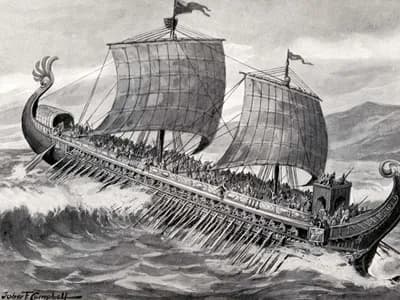
Greek Trireme
Christos Tzifakis: Flamenco Odyssey: I. Sailing, Fandango con Bulería (arr. M. Travlos for guitar and chamber ensemble) (Christos Tzifakis, guitar; Evangelos Stathoulopoulos, flute; Panagiotis Bourazanis, bass; Nikos Kapilidis, drums; Giannis Papagiannoulis, percussion; Christos Xenakis, samples)
We’ll close with one of the most well-known of the sailing pieces: Ronald Binge’s Sailing By. After Tzifazis’ exciting journey, Binge’s work brings us back home again.
Ronald Binge: Sailing By (Slovak Radio Symphony Orchestra; Ernest Tomlinson, cond.)
It was traditionally used by the BBC for the late-night Shipping Forecast that closed its broadcasting day. Here’s the Shipping Forecast for 18 December 1993.
For more of the best in classical music, sign up for our E-Newsletter
Radio 4 Shipping Forecast
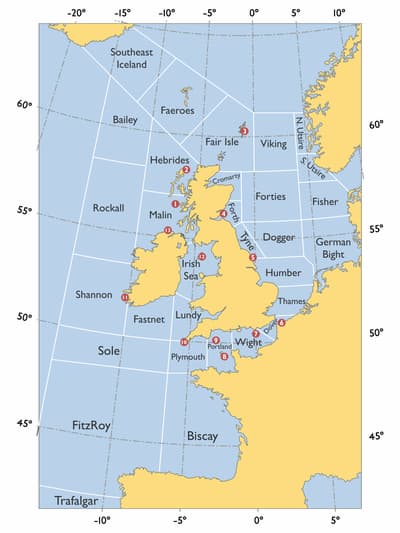
The areas mentioned in the Shipping Forecast

